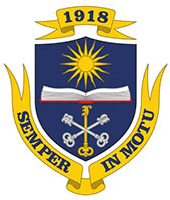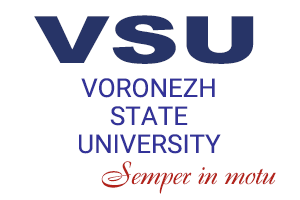24 May is the Day of Slavic Literature and Culture in Russia. Every year, 2nd year students from the Faculty of Philology of VSU go on practice visits to various villages of the region under the supervision of the teachers of the Department of Slavic Philology. During these visits they collect dialectological material. They make records of the dialects used in various villages, analyse the specific features of these dialects, learn about the history of the villages, their culture, and the life of the local people.
Marina Panova, Associate Professor at the Faculty of Philology, on the importance of studying dialects – a large part of the Slavic culture
“We know that the Russian language is based on dialects. Dialects have been a living source of the development of the lexical system of the national language for many centuries. Bright and authentic dialects were often used by writers to create unique and memorable characters.
Dialects are an amazing phenomenon. On one hand, they are a sort of a language archive. On the other hand, they forecast the development of the literary language. Dialects are now affected a lot by the literary norm and the media, and as a result a lot of linguistic phenomena are lost forever. This is why it is important to record what we have, while there is still time. However, dialects can incorporate other linguistic phenomena. For example, the sound “f”, which was not originally common in the Russian language, is replaced with “khf” (Khfedor, khfamily) and foreign words adapt to the system of the Russian language (for instance, in a number of Voronezh dialects, the word “kimono” now means “bathrobe” and is used according to Russian grammar.”
Associate Professor Velmira Diakova told us about the educational value of studying dialects for students
“When studying dialects, researchers, both established scientists and young students, always have to deal with the culture of the local people. They study this culture through words and by means of words. This culture demonstrates the value of labour and teaches respect for the elderly, the national culture, and nature. Villages have their own, different lives. Everyone who goes to them gets to know this life and feel the atmosphere of kindness and beauty, joy and sadness.
Village folks are always eager to talk. They can tell you about the difficulties they’ve had to overcome, their children, relatives, fellow villagers, and the nature around them. This makes students understand the value of language, the need to cherish it, and fosters patriotism.
The Faculty of Philology (both students and scientists) have been studying Voronezh dialects for a long time. Now, that the country is developing a new ideology, such studies are becoming of utmost importance.”
Yulia Gaidukova, a 2nd year student, told us about the dialectological practice
“I am studying local history and culture. I am collecting information about the origin and meaning of the names of places in the Kantemirovsky district of the Voronezh Region.
While collecting the material we take into account the specific features of the dialects of the Kantemirovsky district, because in this district people use a Ukrainian dialect. To understand local people better, we should know what dialects they speak.
Our research work is hindered by the fact that local people don’t always know the meaning and origin of the names of the places, or are not quite sure about it. So what we do is put together small bits of information we get from the villagers of various ages.
Any such information can help us conserve the memory of the dialects and old nicknames which young people hardly ever use, such as Khripun, Brekhovo pole, Zaikov, and Khaltaevka. Such local names are important for studying the national language.”
The materials collected during dialectological expeditions were used to create a catalogue of the Dictionary of Voronezh Dialects, stored at the Department of Slavic Philology. It includes lexical material from over 400 villages of the Voronezh Region collected over a period starting in 1946. Under the supervision of Professor Gennady Kovalev, the staff of the department uses the catalogue to create the Dictionary of Voronezh Dialects (3 volumes have been published up to now).
Text: Yulia Belaya
Photo provided by Marina Panova






